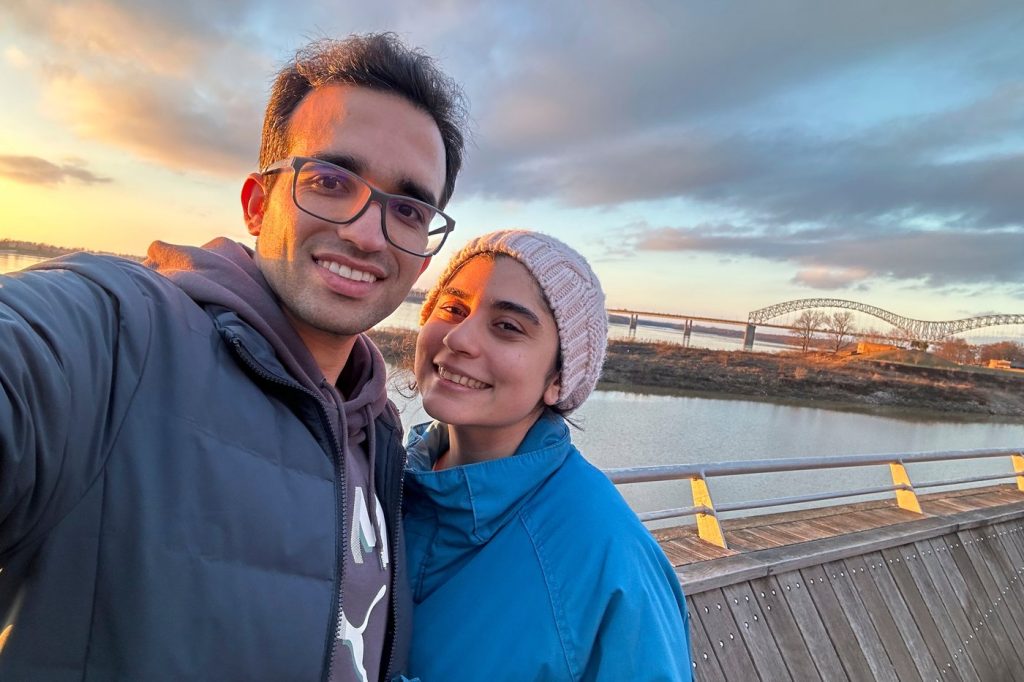TUSCALOOSA, Ala. (AP) – Sama Ebrahimi Bajgani and her fiancé, Alireza Doroudi, were celebrating the Persian New Year at the University of Alabama when their lives drastically changed. In the early hours, armed immigration officers arrived at their apartment and arrested Doroudi, leaving the couple in shock.
Bajgani described the event: "I was living a normal life until that night. After that, nothing is just normal." The news of Doroudi's detention quickly circulated within the small Iranian community in Tuscaloosa, where both he and Bajgani are doctoral students. Following Doroudi's arrest, other Iranian students reported feeling pressured to “lay low” and “be invisible,” leading to a pervasive atmosphere of fear among the community.
Doroudi's case is part of a broader immigration crackdown initiated by President Donald Trump, which has seen many international students across the U.S. detained. Bajgani, expressing her anxiety, mentioned that the couple is unaware of the reasons behind Doroudi's deportation order. She also noted the impact of Trump’s recent visit to the university, which made her feel overlooked during their crisis.
One of Doroudi's close friends, an Iranian civil engineering student, shared the emotional toll the situation has taken on him, stating he has lost over 10 pounds due to stress and depression since the arrest. He described the feeling of waiting for his own potential detention by saying, "It’s like all of us are waiting for our turn. It could be every knock, every email could be deportation.” This heightened sense of dread makes him avoid unnecessary outings, which include fearing police involvement even in non-fault accidents.
Doroudi, originally from Shiraz, Iran, is a 32-year-old mechanical engineering student who entered the U.S. legally on a student visa in January 2023. While managing a demanding schedule working 60-hour weeks and attending school, he also found time to assist friends and family. According to Bajgani, his visa was revoked in June 2023 without explanation. Although the university indicated that he could remain as long as he didn’t leave, this guidance did not protect him from detention.
The University of Alabama did not comment directly on Doroudi’s specific case but stated that it provides resources to assist immigrant students in complying with federal law and offers guidance when visas are revoked. University spokesperson Monica Watt emphasized that international students are valued members of the campus community.
After being detained for three days in county jail, Doroudi is currently held in an immigration detention facility in Louisiana, more than 300 miles from Tuscaloosa, awaiting a deportation hearing scheduled for next week. In a letter relayed through Bajgani, Doroudi expressed his confusion about his situation: "I didn’t deserve this. If they had just sent me a letter asking me to appear in court, I would’ve come, because I didn’t do anything illegal. I stayed with their permission. What was the reason for throwing me in jail?”
The crackdown has reportedly affected over 1,000 international students in the U.S. since late March, including many who participated in protests related to Israel’s actions in Gaza. Immigration and Customs Enforcement (ICE) has reversed some visa revocations, including those of four University of Alabama students, according to reports.
A Louisiana judge denied Doroudi bail due to insufficient evidence offering him risk as a national security threat. Doroudi's attorney, David Rozas, expressed disbelief about the ruling, emphasizing that no evidence had been presented to support the government's claims.
International students comprise over 13% of the Graduate School at the University of Alabama, with approximately 100 Iranian students enrolled. Each year, this cohort gathers for a picnic to celebrate Sizdah Bedar, which marks the thirteenth day of the Persian New Year. However, this year’s festivities felt subdued, resembling a "funeral service," as observed by attendees. One anonymous Iranian doctoral student lamented about the difficulty of living authentically in the current climate, echoing sentiments of fear toward both the U.S. and returning to Iran.










